In an earlier guide, we went into some deep detail on how to write your CV, what things to include, our top tips, as well as some do’s and don'ts for creating your CV.
But now it’s time to talk about how to structure a CV. After all, what good is all that great information without the right format and layout?
Your CV’s purpose is to create a strong impression of you, and to effectively inform a potential employee of your skills and suitability for a job. Therefore the design, or more simply, the structure of your CV, plays a big role.
In this CV format guide, we take you through some of the most important things to remember to include in yours, and a few of the best CV structure examples out there.
Let’s dive in!
Table of Contents
- CV format guide — Some MUSTS for your CV
- What to always include in your CV
- CV structures to consider using
CV format guide — Some MUSTS for your CV
Keep it short and neat!
It’s an oft-repeated fact that on average, employers look at a CV for SIX to SEVEN SECONDS!
If something catches their eye, they will read in it more depth, but here’s the key takeaway: To create an immediate impression, your CV should be short and neat i.e. well-structured with easy-to-find information.
How short? Around 2 pages is the ideal CV length.
What to always include in your CV
The things you might put in your CV can change from job to job, and industry to industry. But for a student seeking the first job in their professional career, these are the things you should always include:
Contact details
Simple. Your email address and a phone number (including your country’s dialling code). Make it easy to get in touch with you.
Top tip: If your CV is online (PDF, Word, Google Docs), make your email address a hyperlink so they can simply click to contact you!
Personal Summary
Captivate your reader — make them interested in you! In a paragraph or two, tell them what they need to know about you (or what you want them to know about you).Keep it simple and to the point, with a professional voice.
You can write it in the 1st person (I am...) or the 3rd person (Sean is...), depending on how you want it to sound. The 3rd person will make it sound more objective, and the 1st person will make it sound more personal.
Skills
Make a list of the things you’re good at that make you ideal for the job. If you haven’t developed so many professional skills yet, you could focus more on “soft skills”, such as communication, teamwork, work ethic, creativity, problem-solving etc.
Qualifications & education
This is especially important for student CVs. You might not have much experience, so your education and qualifications (training, degree etc) can set you apart!
Relevant experience
This is a tough one to include in a CV structure for students, as you probably can’t boast loads of industry experience yet. However there’s still a way!
Here you can talk about life experiences, things you’ve learned while studying abroad, and of course, any extracurricular activities you’ve undertaken that might impress an employer.
Wondering what kind of activities? Check out our article on Extracurricular activities that can give your CV
References
Every CV needs two referees who can speak positively of you and your skills when the employer contacts them. You need to include their name, job title, company and contact details.
So who should a student use as a reference? If you’ve had a part-time job, consider using your old manager. Otherwise, it’s a good idea to list a professor, instructor or teacher who thinks highly of you.
Also read: Tips to stand out your CV
CV structures to consider using
Now that you know what to include, let’s take a look at some of the best CV structure examples! We’ve spent hours and hours online looking for some of the better CV structures out there, and here are the ones we think are best.
In all of these, feel free to swap out the title “areas of expertise” for “skills”, and “professional experience” for “relevant experience”!
Note that these structures are from acclaimed online CV builder Novoresume.
1. Basic
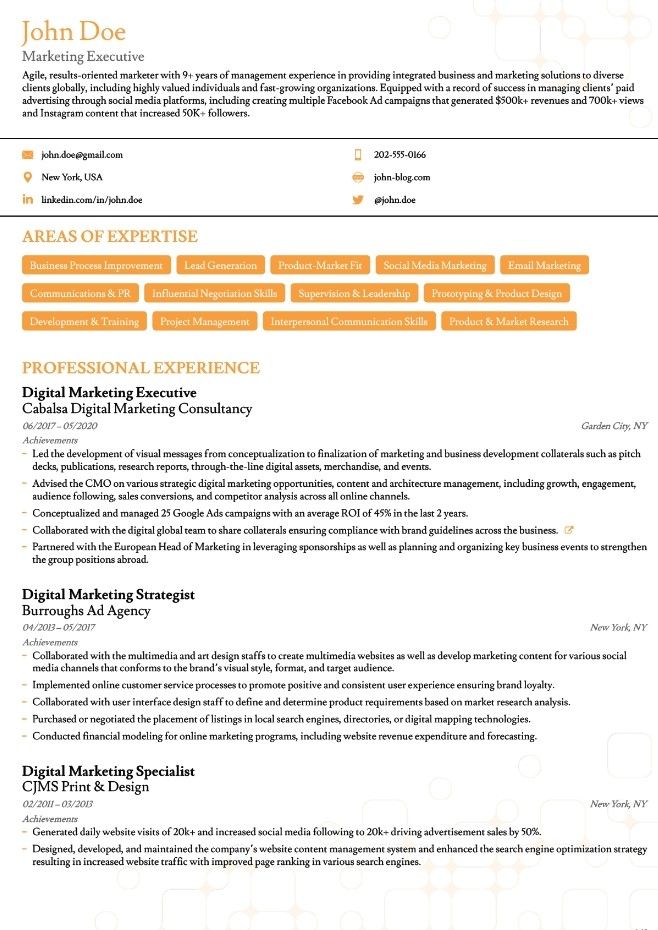
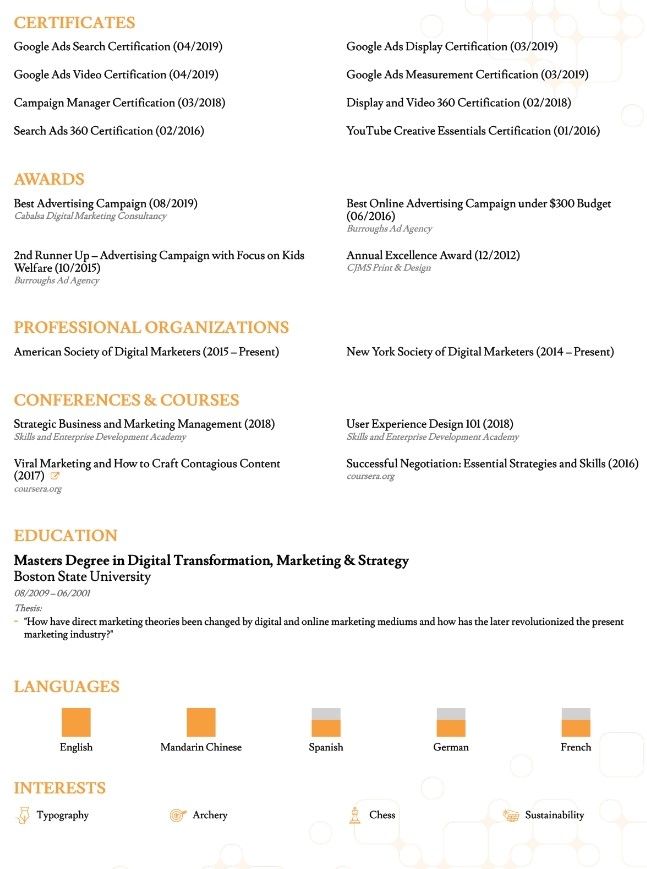
Why use this CV structure?
We like the simplicity of this one, and the way that it can be easily tailored to meet your own experience levels. Overall, it’s a great all-rounder that you can use at any stage of your career.
2. College
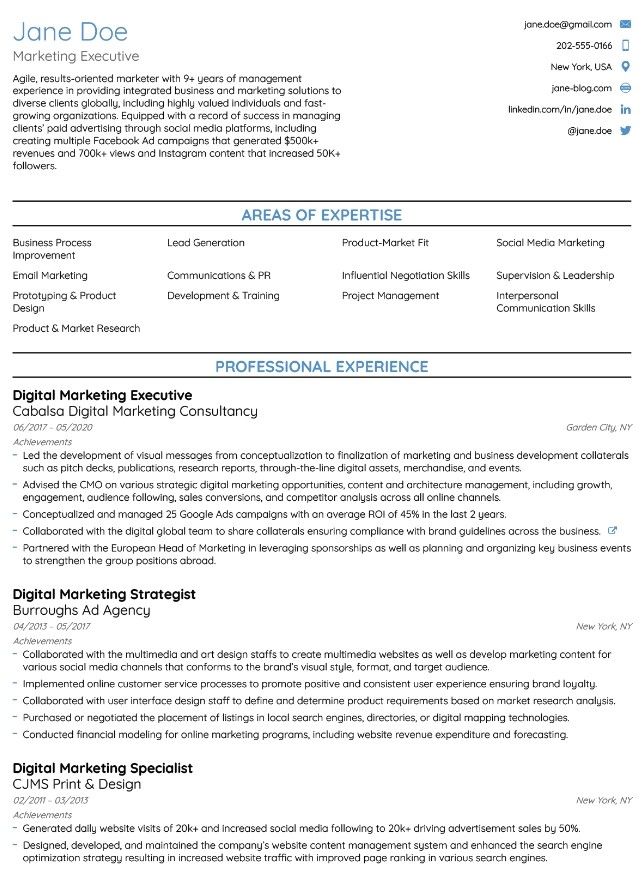
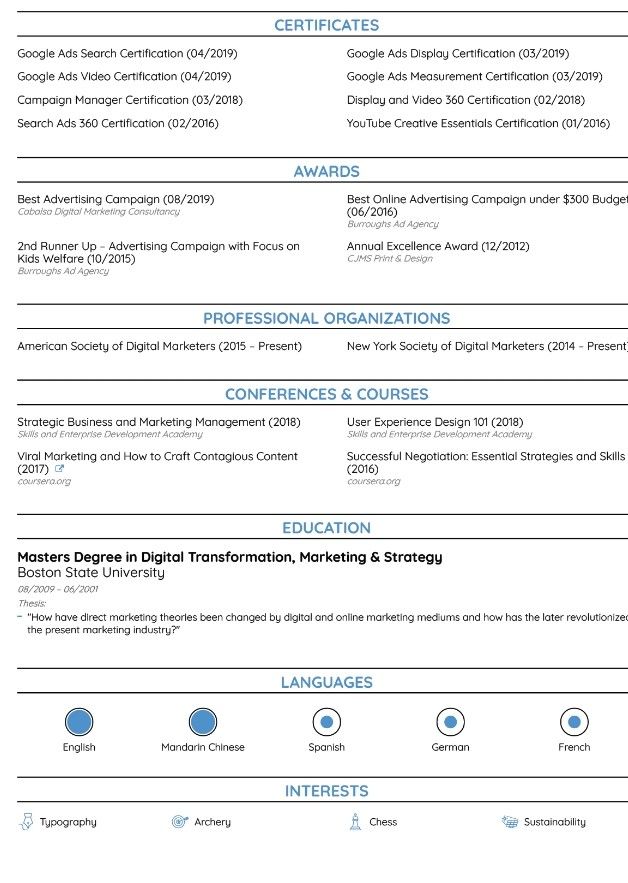
Why use this CV structure?
As the name suggests, this structure is ideal for students who are in search of an internship or graduate position. It looks friendly, youthful and respectful, and the text has lots of room to breathe within the overall structure.
3. Creative
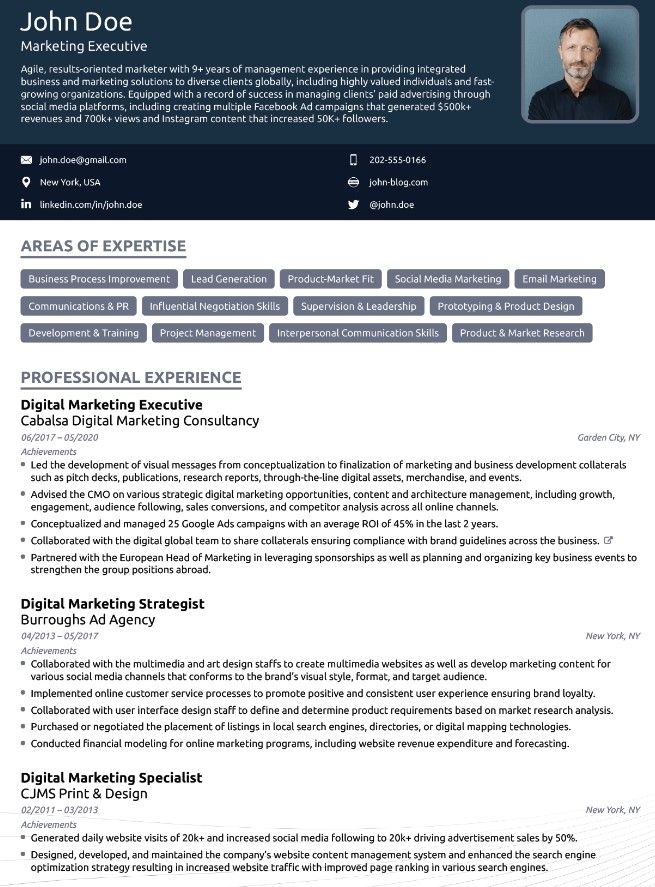
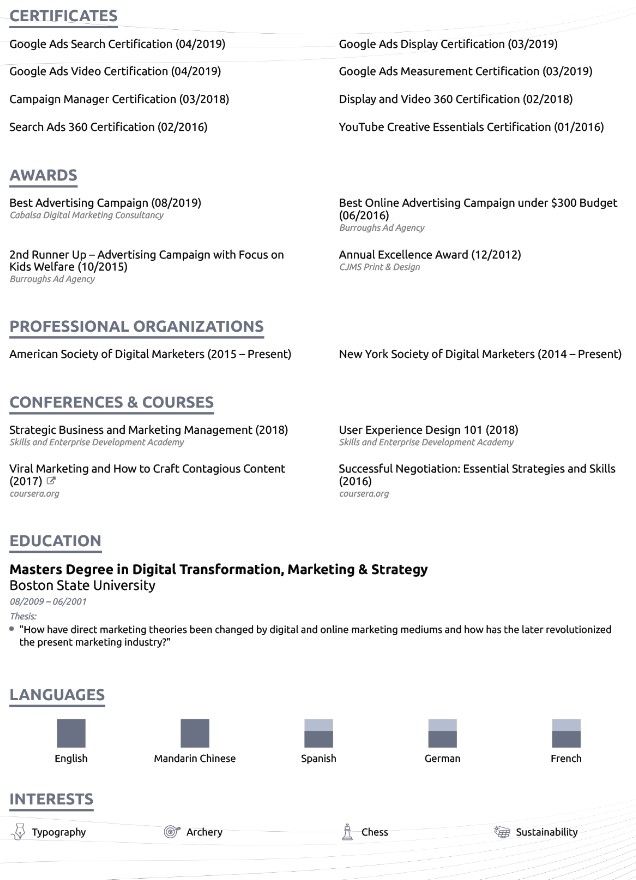
Why use this CV structure?
The bold banner colour really helps it stand out and create a strong impression. Of course, you could always choose a colour that reflects you better! There’s loads of information sections, but it’s not too cluttered. If you’re keen on a tech or creative job, this could be ideal for you.
4. Modern
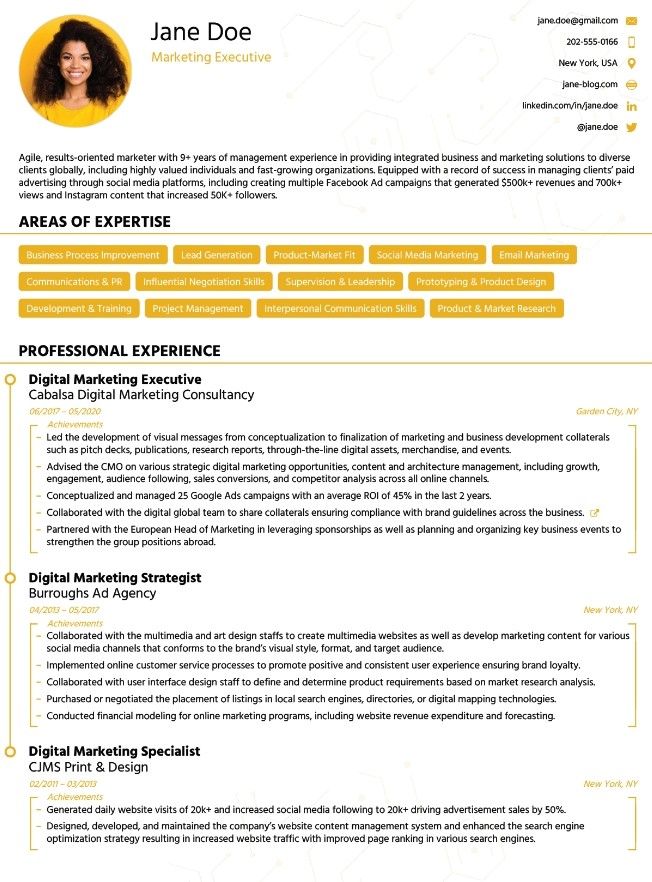
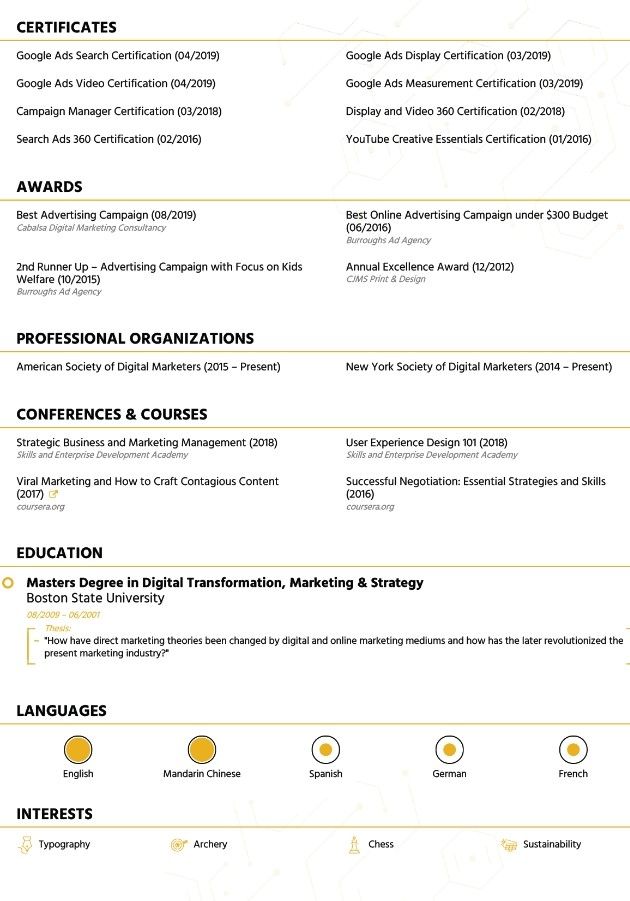
Why use this CV structure?
This one’s got a lot going on that we love. It’s got an approachable feel, yet it’s extremely contemporary. Again, it’s really nicely laid-out, and the border details give it an innovative edge.
If you’re heading into a career in marketing or advertising, or considering joining a startup company, this could be ideal.
Also read: Do's and don'ts for writing a winning CV
5. Professional
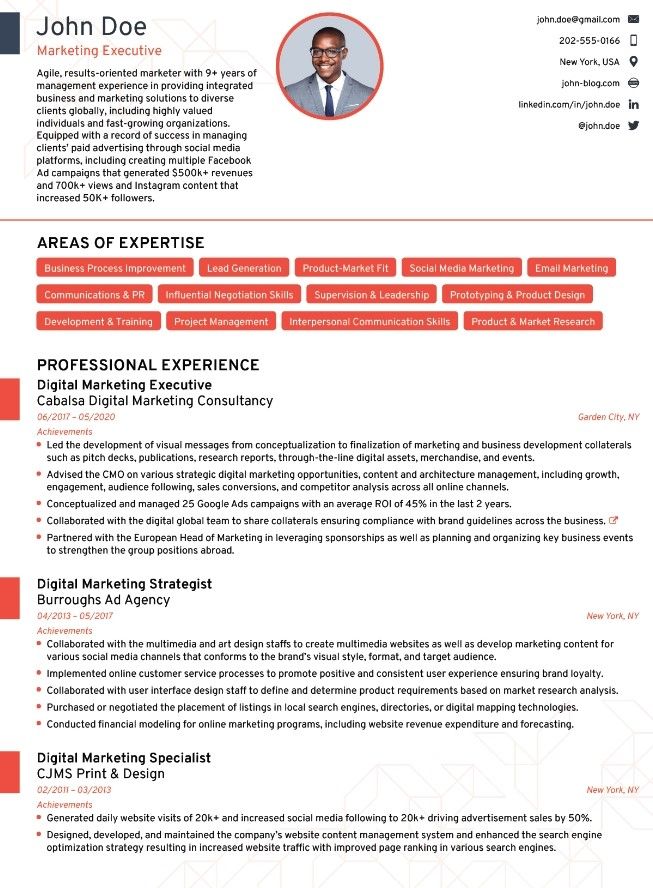
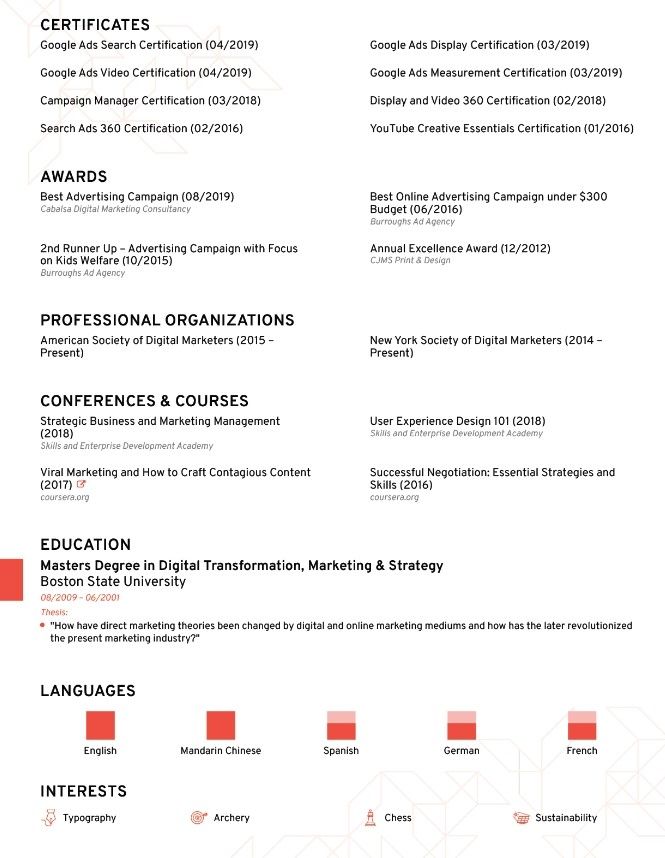
Why use this CV structure?
It’s strong, it’s confident, and it's quite serious. This structure might not be ideal for more casual startups, but for the formal business world it’s going to hit the right notes!
If you like, change up the colours to make it more suitable for your personality, and remove the sections that aren’t applicable - just trust that it’s going to make a bold impression!
Considering moving abroad to work?
Maybe you should think about furthering your studies to bring your career to the next level! Find out more about your study abroad options right here at Edvoy.
